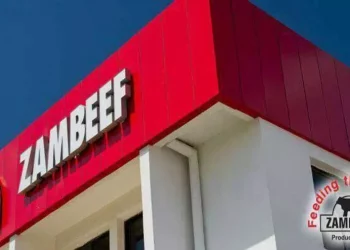Agriculture plays a vital role in Zambia’s economy. According to the policy for monitoring and evaluation (PMRC) up to 70% of the labour force is currently engaged in the agriculture sector. It is estimated that approximately 1.6 million small-scale farms and about 1,000 large-scale farms characterize the sector. A large majority of individuals in the agricultural sector comprise of small to medium scale farmers who mostly produce staples (maize/corn) for their own consumption and sell off any surplus. Some of the major challenges faced by farmers every farming season is the high cost of procuring inputs with which to grow their crops (mostly corn).

Against this background, successive governments in the republic of Zambia, in an effort to make the country food secure and reduce poverty decided to provide essential inputs such as fertilizer and seed to these small-scale farmers at a subsidized cost.
The UPND has also taken up the responsibility to prioritize agriculture in its manifesto and has identified the sector as a tool for poverty alleviation and economic diversification and growth. In this sector, the UPND intend to “implement a comprehensive programme of agricultural transformation as a key to boosting labour productivity and increasing agricultural production.” They intend to do this by “providing targeted farm input packages including livestock through pass-on programmes, fertilizer, seed and appropriate farming technologies to vulnerable groups of small-scale farmers and enhance agricultural diversification away from maize.”
The farmer input support programme, also commonly referred to as FISP has been an integral part of boosting small scale farmer productivity and securing Zambia’s food security since its inception. According to PMRC “Farmer Input Support Programme (FISP) was first introduced in 2001 as the Fertilizer Support Programme (FSP). It was later revised and renamed in 2009, to Farmer Input Support Programme (FISP). Under FISP the input pack size given to farmers was reduced from eight (8) 50 kilogram (50kg) bags of fertilizer and 20 kilograms (20kg) bags of maize seed to four (4) 50 kilogram bags (50kg) of fertilizer and 10 kilogram (10kg) bags of maize seed.”
While the programme was intended to benefit the majority small-scale farmers in Zambia, it has faced a number of challenges in its administration. According to the Indaba Agricultural Policy Research Institute (IAPRI), “Poor implementation has resulted in the late delivery of fertilizer to farmers, a situation that compromises farmers’ crop yields. When fertilizer is provided, it is not necessarily used effectively by smallholder farmers and the one size fits all blanket fertilizer recommendation fails to take into account spatial variability of soil fertility and climatic conditions.” The result of this is that yields among small-scale farmers have remained low despite the availability of fertilizers.
Furthermore, the program has encountered problems reaching its intended recipients “a reasonable share of subsidized fertilizer has not been reaching those who cannot afford to buy commercially priced fertilizers. The smallest farmers in Zambia i.e. those cultivating less than 2 hectares who account for over 70% of all the smallholder farms in the country participated only marginally in the maize production expansion of 2010/11”.
In addition, the burgeoning indirect costs incurred as a result of administering the FISP program have resulted in higher expenditure for the government of Zambia. According to IAPRI “government expenditure on input subsidies via FISP has remained very high due to the tendering process, transportation, and storage.” This message was further reiterated in the Finance Minister’s budget speech were he indicated that “the Direct Input Support mode of delivering inputs is unsustainable to the Treasury with expenditures increasing significantly over the years with limited change in the number of beneficiaries and input package.”
In response to these challenges, the government in 2015 decided to launch the e-voucher system known as e-FISP in an effort to enhance the efficiency of the programme and reduce costs. However, the Minister of Finance recently indicated in the 2022 budget speech that the e-voucher system has encountered problems of its own, specifically; the minister stated “in areas where the e-voucher system is being used, some farmers have not been receiving inputs despite making a contribution.”
The FISP programme is set to undergo some substantial changes going forward, especially after the change in government. In a recent ministerial statement to parliament, the minister of Agriculture Hon. Mtolo Phiri indicated “the government will not engage local transporters in the districts. This measure has been taken to ensure equity across all aspects of the programme and to rationalise expenditure under FISP.” The Minister further indicated governments indebtedness to transporters and prioritized dismantling the debt before engaging them further. In a statement to ZNBC the agricultural Minister stated that “agro dealers will not be used in the distribution of inputs this farming season because the amount of inputs with them is failing from what is required by the farmers.” The minister further committed to reducing the cost of inputs as per the UPND manifesto promise.
Finally, the Misnister of finance hinted that the FISP program is set to be overhauled to ensure that the past problems faced by the programme are fixed. In his budget speech, the Finance Minister signaled that “government will implement a new comprehensive agriculture support programme commencing in the 2022/2023 season. This programme will be cost effective, better targeted and equitable across beneficiaries. It will also support the supply of quality inputs, attain diversification of crops as well as increase production and productivity.”
Based on all of this, the future of the FISP programme appears to lie in a more efficient, cost effective programme, with a more equitable distribution of inputs (including female-headed households), diversification away from the exclusive production of corn and transparency in the tendering process. However, the UPND’s promise to reduce the price of inputs could mean that the amount allocated to purchasing and subsidizing these inputs will need to increase as well. The substantive key reforms of the FISP beyond 2022 remain unclear; however, the farming community and nation will be following the Finance Minister’s pronouncements with ardent interest.





